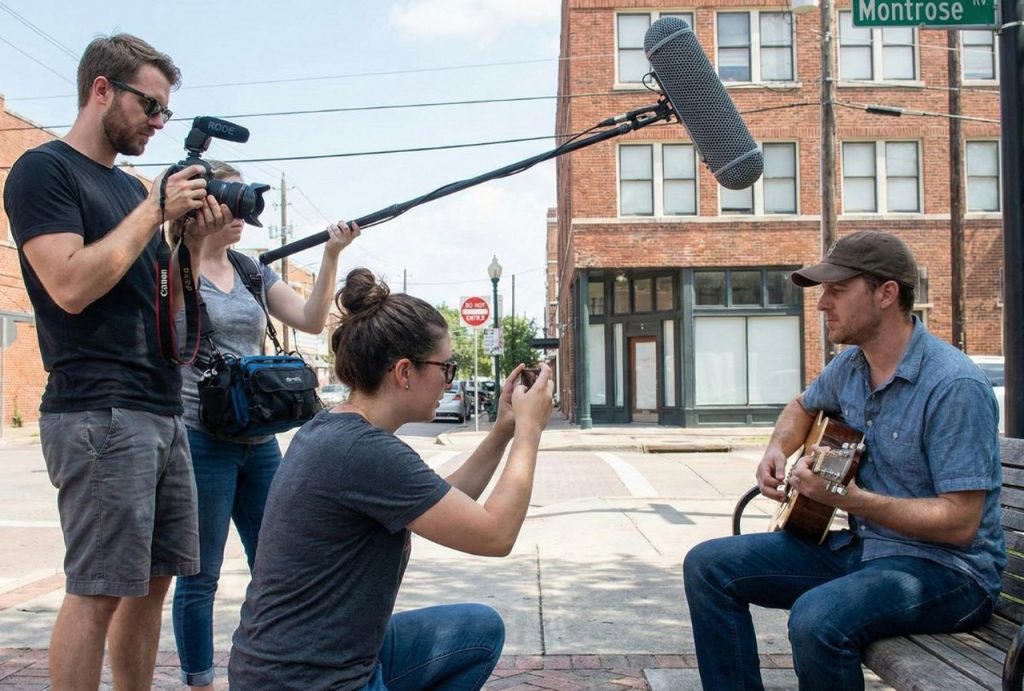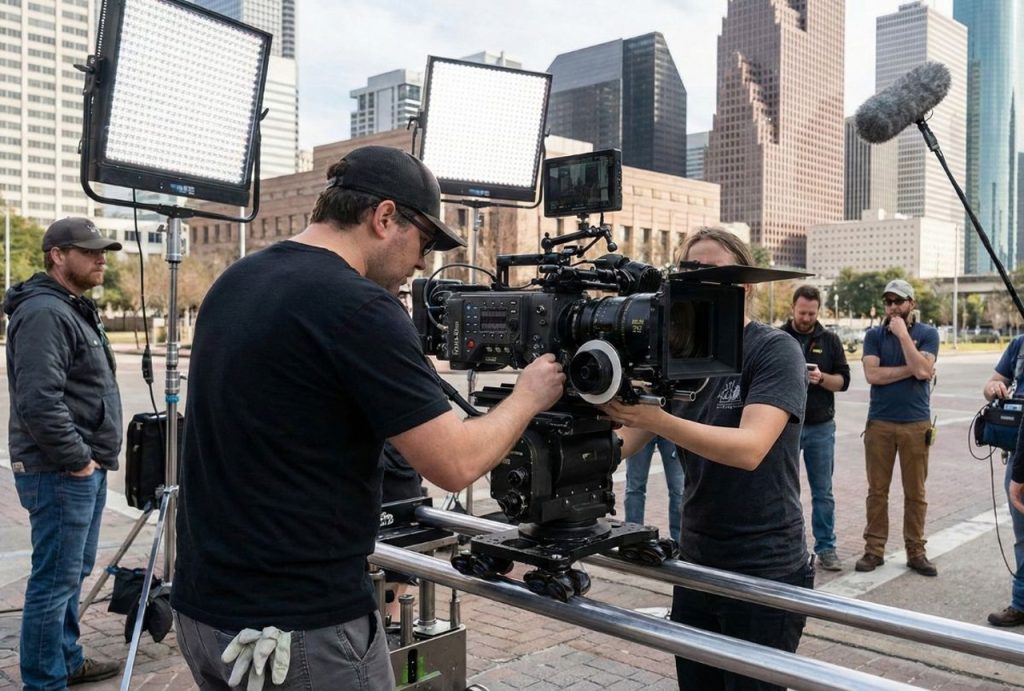What Does a Videographer Do? Roles, Skills, and Tools Explained
In the modern world, videography is an essential part of media creation, used across numerous industries to capture compelling visuals that tell stories, market products, or preserve memories. Videographers are skilled professionals who take on a range of tasks related to capturing, editing, and producing video content. But what exactly does a videographer do, and what skills are necessary for success in this field?
This blog post will provide a comprehensive guide to the role of a videographer, from their primary responsibilities to the tools and skills they need to excel. Whether you are considering hiring a videographer for a project or pursuing a career in videography, this post will give you valuable insights into the field.
What is a Videographer?
A videographer is a professional responsible for capturing video footage for various types of projects, such as films, commercials, corporate videos, weddings, and events. Videographers are involved in all aspects of video production, from planning and shooting to editing and finalizing the project. While their role often overlaps with that of a filmmaker or cinematographer, videographers typically focus more on the technical aspects of capturing footage rather than directing or producing content.
Key Responsibilities
A videographer’s job is multifaceted and involves a range of tasks throughout the production process:
- Pre-Production Planning:
Coordinating with clients to understand project goals.
Scouting and selecting appropriate locations for shoots.
Organizing equipment and preparing a shooting schedule.
- Production (Filming):
Operating cameras, adjusting angles, and setting up shots to capture high-quality footage.
Ensuring proper lighting, sound, and framing for each shot.
Directing talent or subjects to achieve the desired look and feel.
- Post-Production:
Editing footage to create a polished final product.
Adding sound, music, graphics, and special effects.
Exporting videos in the desired format and delivering them to clients.
In addition to these core duties, videographers often collaborate with directors, producers, editors, and other team members to ensure the final product meets the project’s goals.
Essential Skills for a Videographer
Videographers need to possess a broad range of skills to succeed. These skills blend technical knowledge, creativity, and organization. Below are some of the key abilities a videographer should have:
1. Technical Proficiency
Since videographers work with a variety of complex equipment, having technical knowledge is essential. This includes understanding how to use cameras, lenses, tripods, and other filming tools. Some key technical skills include:
- Camera Operation: Knowing how to operate different types of cameras, including digital SLRs (DSLRs), mirrorless cameras, and professional camcorders.
- Lighting Setup: Understanding how to use artificial and natural light to create visually appealing shots.
- Audio Management: Ensuring that the sound quality is as high as the video quality, using microphones and mixers to capture clear audio.
2. Creativity and Storytelling
A videographer must also be creative. Crafting a compelling visual story requires a good sense of timing, composition, and artistic vision. Videographers need to think about how each shot contributes to the narrative or the message the video is trying to convey.
- Framing: Knowing how to compose shots that are visually balanced and appealing.
- Shot Composition: Understanding the rule of thirds, depth of field, and other compositional techniques to create dynamic and engaging footage.
- Creative Direction: Collaborating with directors or clients to bring creative ideas to life.
3. Editing Skills
Once the footage is captured, it’s time to bring it all together in the editing room. Videographers need to be proficient with editing software to trim, arrange, and enhance footage.
- Video Editing Software: Familiarity with programs like Adobe Premiere Pro, Final Cut Pro, or DaVinci Resolve.
- Color Grading: Adjusting the colors and tones of footage to achieve the desired aesthetic.
- Audio Syncing and Mixing: Ensuring that the audio and video are in sync and of high quality.
4. Communication and Collaboration
Videographers often work with clients, directors, and other team members. Strong communication skills are essential for understanding project requirements and collaborating effectively to achieve the desired outcome.
- Client Interaction: Listening to clients’ needs and expectations and ensuring those are met.
- Teamwork: Working with other professionals, such as directors, producers, and editors, to complete a project.
Tools of the Trade: Equipment Every Videographer Uses
Videographers rely on a range of tools to ensure they produce high-quality footage. Below are some of the most common pieces of equipment every videographer should be familiar with:
1. Cameras
The most essential tool for any videographer is the camera. Depending on the type of project, videographers may use different types of cameras:
- DSLRs/Mirrorless Cameras: Popular for their high-quality image sensors and versatility.
- Camcorders: Traditional video cameras that are still widely used for events and corporate work.
- Cinema Cameras: Professional-grade cameras used in high-end production, often providing more advanced features like greater control over depth of field and frame rates.
2. Lenses
Lenses play a significant role in the look of a video. A videographer must know how to select the right lens for each shot:
- Wide-Angle Lenses: Ideal for capturing expansive scenes or large groups.
- Telephoto Lenses: Used for zooming in on distant subjects without losing image quality.
- Prime Lenses: Provide sharpness and a wide aperture for cinematic shots.
3. Stabilization Gear
Shaky footage can ruin a project, which is why stabilizing equipment is essential. Some common tools include:
- Tripods: Provides stability for stationary shots.
- Gimbals: Handheld stabilizers for capturing smooth footage while moving.
- Dollies and Sliders: Used for creating smooth, controlled camera movements.
4. Lighting Equipment
Lighting is crucial for creating the right mood and ensuring clear visibility. Common lighting equipment includes:
- LED Lights: Energy-efficient and adjustable lights that provide consistent lighting.
- Softboxes and Diffusers: Used to soften light and reduce harsh shadows.
- Reflectors: Help bounce light onto subjects to fill in shadows.
5. Editing Software
Post-production is where the magic happens. Videographers must be skilled in using editing software such as:
- Adobe Premiere Pro: A widely used editing tool for cutting, trimming, and sequencing footage.
- Final Cut Pro: Popular for its user-friendly interface, especially for Apple users.
- DaVinci Resolve: Known for its powerful color grading capabilities and editing features.
Specializations in Videography
While the general tasks of a videographer are fairly consistent, the industry offers several niches where videographers can specialize. Some of the most common areas include:
1. Event Videography
Videographers in this field specialize in capturing events such as weddings, conferences, concerts, and corporate events. This work requires quick thinking, the ability to work in varying conditions, and excellent organizational skills.
2. Commercial Videography
Commercial videographers create promotional videos for businesses and brands, ranging from product ads to company profiles. This type of videography requires an understanding of marketing and the ability to create visually engaging content that effectively communicates a brand’s message.
3. Documentary Videography
Documentary videographers capture real-life stories, often in the form of documentaries or educational videos. These videographers must be able to handle diverse environments and know how to tell compelling stories using raw footage.
4. Real Estate Videography
In real estate, videographers create virtual tours and promotional videos for properties. This requires a keen eye for detail, as the videographer must highlight the property’s best features while ensuring the footage looks professional.
Nightwolf Productions Serving the Spring Branch West Community and Beyond in Houston
Nightwolf Productions is dedicated to serving the diverse needs of the local community of Houston, including individuals residing in neighborhoods like Spring Branch West With its convenient location near landmarks such as Westchester Academy for International Studies and major intersections like Westport Ln & N Wilcrest Dr (coordinates: 29.78209097199259, -95.57863809404884), we offer Videography company houston.
Partner with Nightwolf Productions, a leading Videography company houston in Spring Branch West
Navigate from Spring Branch West to Nightwolf Productions Now
A videographer plays a crucial role in today’s media-driven world. From capturing breathtaking footage to editing it into a polished final product, their skillset encompasses both technical expertise and creative vision. Whether it’s for a wedding, a corporate video, or a film, a videographer brings stories to life through the lens.
In the digital age, videography continues to evolve with new technologies and tools. By understanding the roles, skills, and tools involved, you can better appreciate the value that a skilled videographer brings to any project. Whether you are an aspiring videographer or hiring one for your next project, the right professional can make all the difference in creating high-quality video content.
If you’re looking for a videography company in Houston to bring your vision to life, NightWolf Video Productions is a trusted name in the industry, known for delivering outstanding video services tailored to meet your needs.
Frequently Asked Questions (FAQs)
What does a videographer do?
A videographer captures high-quality video for projects like events, commercials, and films, handling all aspects of production, including planning, filming, and editing using specialized equipment.
What skills are required to become a successful videographer?
Key skills include technical proficiency with cameras and editing software, creative vision for shot composition, and strong communication skills to collaborate with clients and team members.
What equipment does a videographer typically use?
Videographers capture and edit footage using cameras, lenses, stabilization gear, lighting equipment, and editing software like Adobe Premiere Pro.
What is the difference between a videographer and a cinematographer?
A videographer focuses on technical video capture and editing, while a cinematographer handles the artistic aspects of lighting, camera angles, and visuals, often working with a director.
What are the different types of videography specializations?
Videographers can specialize in event, commercial, documentary, or real estate videography, each requiring unique skills and approaches.
Related News







